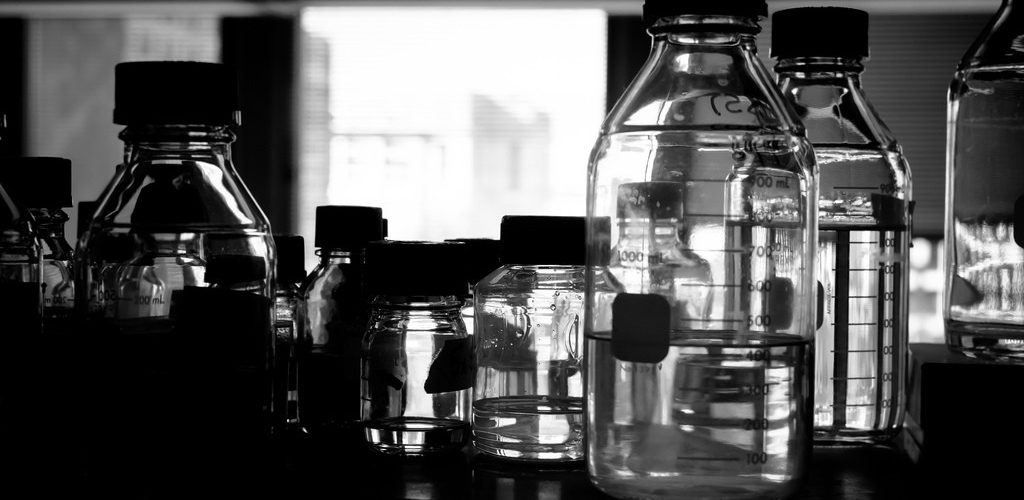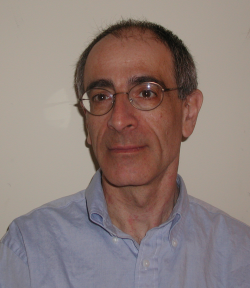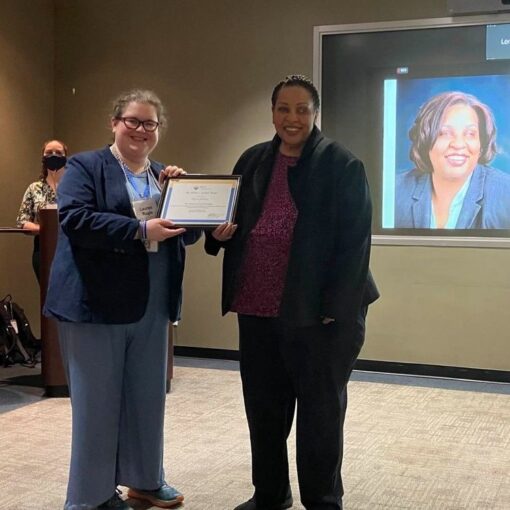When most people picture a chemist, they think of a man with crazy hair, wearing a white lab coat and safety glasses, carefully preparing solutions in volumetric flasks, and poring over data. Other than being female and having rather boring hair, I fit nicely within that stereotype.
I currently work as a bench analytical chemist, analyzing materials that range from chemotherapy drugs to sugar alcohols. If you came to visit me at work, you might see me in the lab, wearing my lab coat and glasses, crouched down to make sure the meniscus is right at eye level as I prepare solutions. But stereotypes can be misleading, and they initially kept me from considering a career as a bench chemist.
Transition from Graduate School
When I started graduate school, like many of my peers, I thought I would become a professor. While I enjoyed teaching, I quickly realized that this was not the path for me. The professors in my department spent most of their time writing grants, or papers, and rarely had the opportunity to be in the lab or dig in to the science.
As I searched for another career, lab-based positions just didn’t seem right for me. I love interacting with other people, and I perceived a job as bench chemist to be too solitary. I wanted to find a position where I could make a direct impact on the lives of other people, and talk about science at the same time. I wanted a break from the research I pursued during graduate school, and considered management consulting or teaching high school as possible career choices.
I ended up taking a position doing forensics work. The job was fast-paced, required lots of interaction with team members, gave me the opportunity to work abroad, and most important for me, gave me the satisfaction of knowing I was directly impacting the lives of other people. The job allowed me to use many of the non-technical skills that are important in graduate school, including time- and resource-management. I quickly learned to triage what work needed to be done first, and to find a way to get an answer, even if you don’t have the materials readily at hand.
USP and the Reality of Bench Work
That first job out of school made me realize that a lab-based career did not have to be the solitary, monotonous pursuit that I had imagined it to be. I learned that I could work with a team to apply my technical skills to problems that made the world a better place. Knowing that my work made a real impact provided the motivation to want to excel at my job. I realized that whatever path I chose going forward, I would need to be working at an organization with a mission I was passionate about.
I started a new job developing and validating separations (HPLC, GC) methods at the United States Pharmacopeia (USP). We work with industry and government (FDA primarily) to develop and publish standards for pharmaceutical products (both drug substances and finished drug products), dietary supplements, herbal medicines, and components of food products. These standards are in the form of monographs, a description of the item of interest, and a set of tests that may be used to verify that the item meets requirements for identity, purity, and potency as needed. We also sell reference standards that may be used with the monographs as a standard against which to test the material of interest. In addition to our monographs, we extend our global health mission to provide training and support worldwide for analytical testing of pharmaceuticals, in order to remove counterfeit and substandard pharmaceutical products from the global supply chain.
I am passionate about my work at USP. I know that as a direct result of my work in the lab, foods and medicines are safer both around the globe and for the people I care about close to home. Whether it is testing for impurities in an antibiotic, or ensuring that anise oil was obtained from the correct (non-poisonous) source, I know that my work matters. I found a job with a mission I could support.
As for the actual lab work, I focus primarily on running HPLC and GC instruments, but I also perform tests that many chemistry students have had to run over the years, such as TLC. My colleagues perform structural elucidation with MS and NMR, but also run more classic tests such as titrations. While much of my work aligns with what people think chemists do, other aspects are less expected.
Despite being a bench chemist, very little of what I do is actually at the bench. The majority of my day is spent planning experiments, running an instrument, analyzing data, and preparing reports, all of which can be done from the comfort of my desk. When I am not at my desk, I am meeting with colleagues across the organization, making sure our goals are aligned, and the lab work we do truly answers their questions about the materials we test, and does so in the most efficient manner possible.
While technical skills are valued, good soft skills such as effective communication and negotiation skills may be even more important in this job. Our lab is set up with small teams of scientists that work closely together, each performing different sets of tests. Working well with this team, and the other scientist requesting the work is key to performing well as a bench chemist.
Another aspect of the job that people may not expect is the amount of required documentation. Experimental details are carefully recorded, and notebooks (paper or electronic) are counter-signed by at least one, but typically more, reviewers. Logbooks are kept for every use of every instrument, and there are temperature and humidity meters located all over the labs. Documentation, data processing, and report writing often take much longer than the experiment itself. I had to learn to adjust my expectations of how much work could be performed in a week. I am still able to be creative while working in the lab, particularly when troubleshooting a method or instrument problem, but the focus is always on properly documenting everything.
I learned over time that my perception of daily work in a lab did not match the reality. There are aspects of my job that can be frustrating (constant documentation) and aspects that are incredibly uplifting (our global health mission), but as a whole I consider it rewarding. I would encourage anyone who is starting their career or switching career paths to spend time talking to (or better yet, shadowing) someone that actually does the job. It may turn out that the stereotypes we associate with a career do not match the reality, and that career could be a perfect match for you.
Cover photo credit: skynoir / CC BY-NC-ND 2.0



